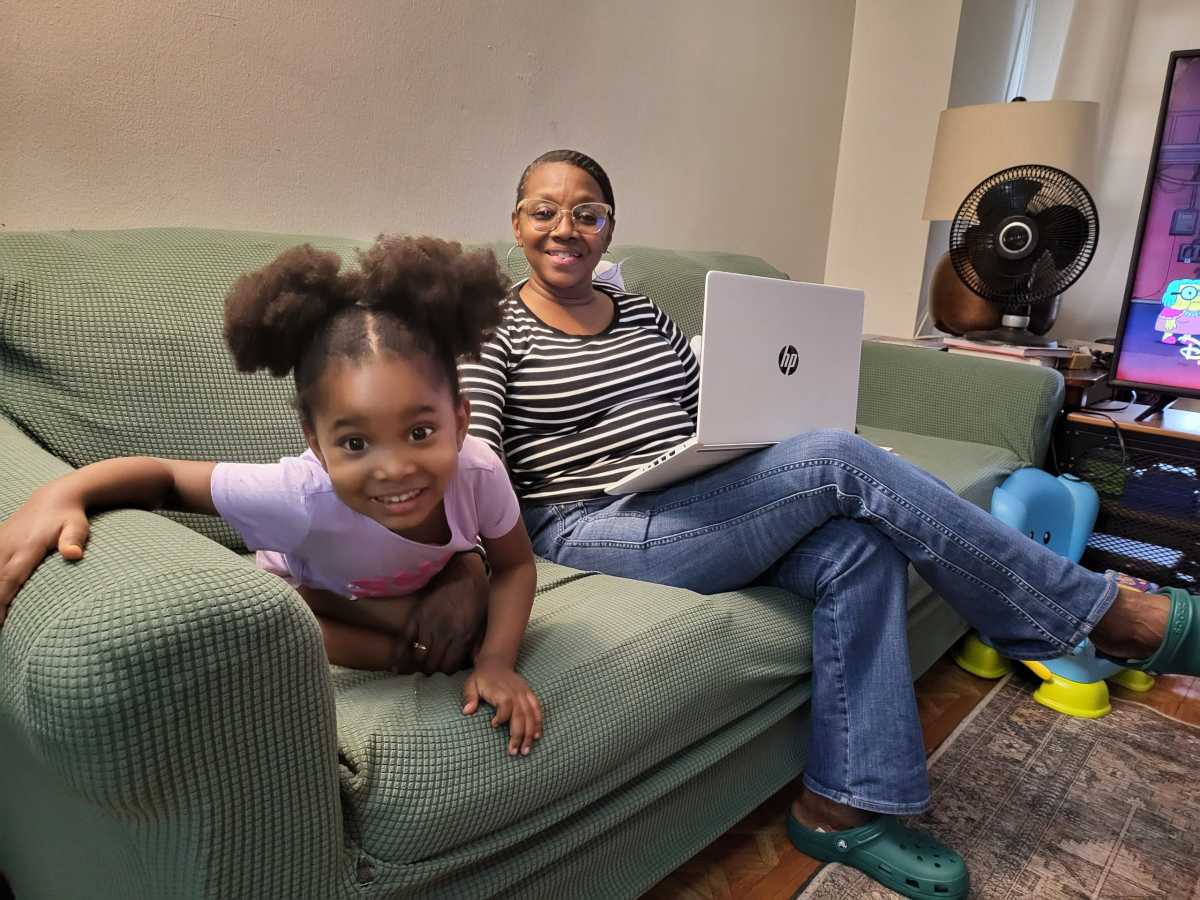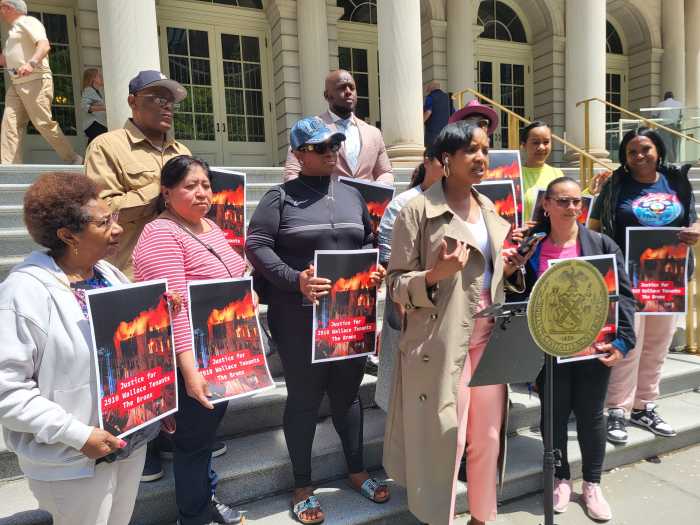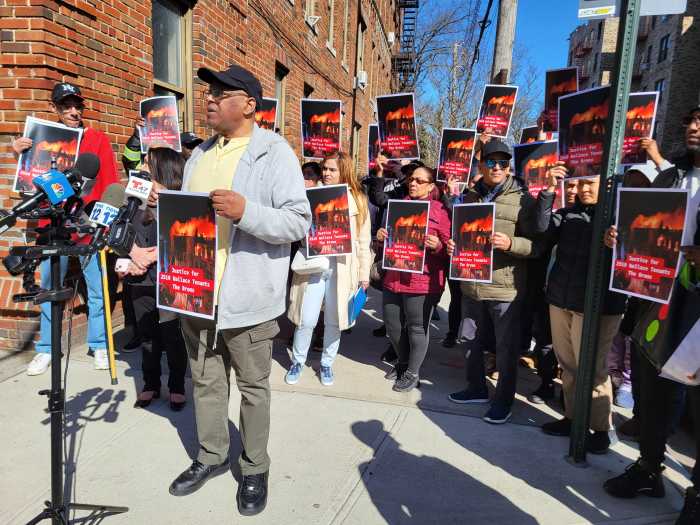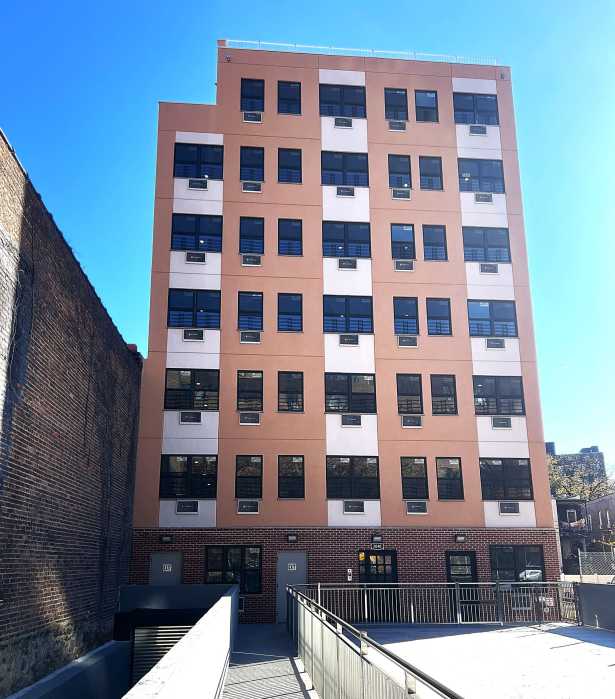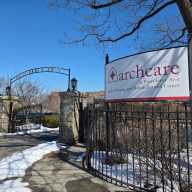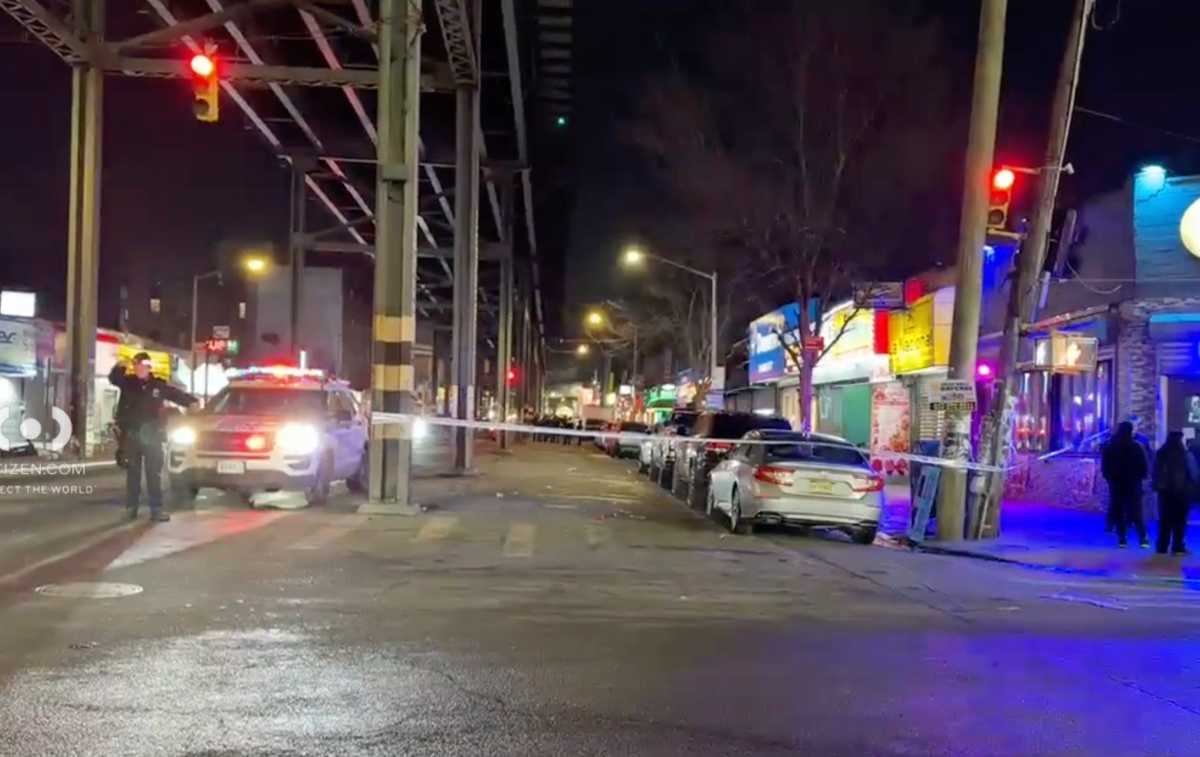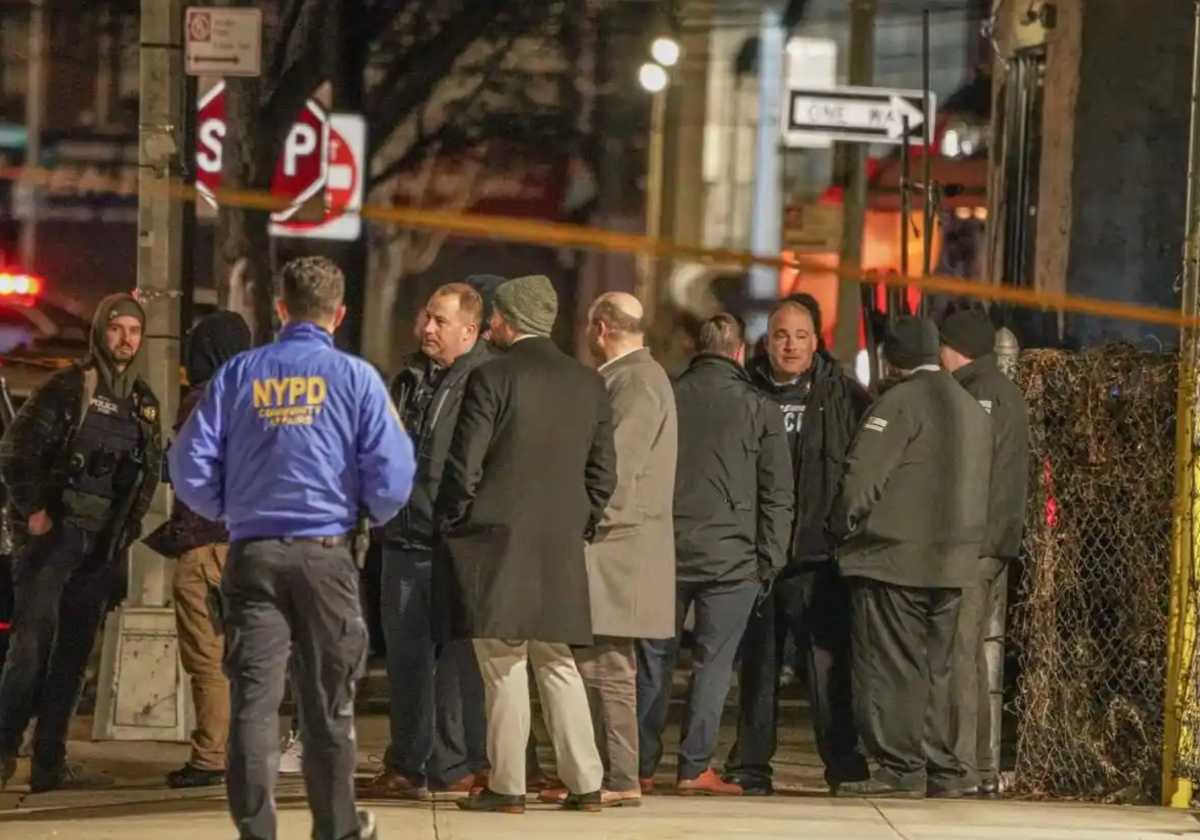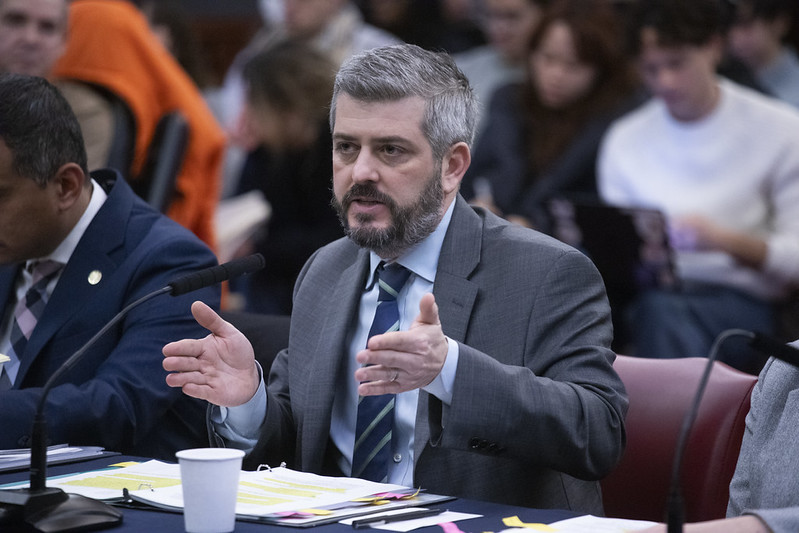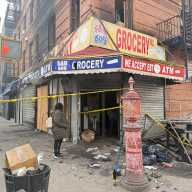
New Yorkers displaced from their homes due to building fires can be locked out for months or even years during repairs, with little help in finding long-term housing in the meantime. Now, state lawmakers are proposing legislation to hold landlords accountable for prolonged repair delays across New York City.
Among the many currently-displaced tenants is Yolanda Richardson, 58, who had been living in a rent-stabilized apartment in Allerton for 25 years when a five-alarm blaze struck the six-story building on Jan. 10.
When Richardson and her 250 neighbors were forced to flee 2910 Wallace Ave. in the middle of the night, she said she lost everything — including the opportunity to pay just $1,348 per month for a two-bedroom apartment.
Overnight, Richardson went from living comfortably in the mid-central Bronx to couch-surfing among friends and relatives in other states, finally landing in her mother’s living room in East New York — “deep Brooklyn,” as she called it.
As much as she loves her family, the situation is uncomfortable and difficult for someone accustomed to independent living, said Richardson. “I’m gonna be 59, and I’m on my mother’s sofa!”
To make matters worse, the landlord was to blame for the fire. FDNY determined the blaze was caused by faulty electrical wiring under the watch of notorious owner Ved Parkash, who has racked up thousands of housing code violations across his portfolio and topped the city’s Worst Landlords List in 2015.
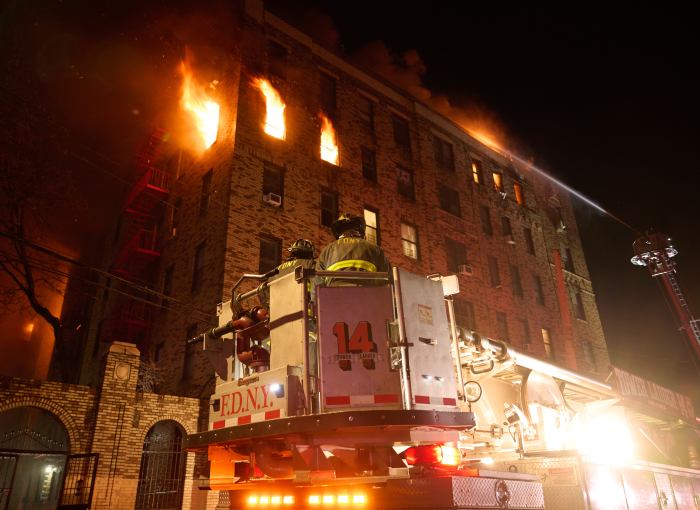
Alarmingly, 2910 Wallace Ave. was the third Parkash building to catch fire in less than two years — each time due to faulty electrical wiring, the FDNY found. In June 2023 alone, fires broke out at two of his other Bronx properties, 1420 Noble Ave. and at 735-745 East 242nd Street, where two people died.
Fortunately, no one from Wallace Ave. was killed. But Richardson and her neighbors, once a close-knit group of mainly working families, are now scattered all over the city and even the country. Twenty-six households remain in HPD emergency shelters, according to the agency.
In response to these kinds of lengthy displacements, State Senator Michael Gianaris, who represents Western Queens, introduced legislation aimed at holding negligent landlords accountable in the wake of fires and other emergencies.
Gianaris’ bill — inspired by a Dec. 2023 fire in Sunnyside, Queens, where tenants are still displaced today — would require property owners to provide suitable housing to any tenant forced to vacate due to an emergency. If the owner is found negligent or responsible for the disaster, HPD would be authorized to find alternate housing for tenants, with the landlord responsible for covering the cost.
The obligation would remain in place until HPD determines the tenants’ original units are habitable.
The legislation passed in the State Senate in the closing days of the session, but companion legislation introduced by Assembly Member Claire Valdez died on the floor due to concerns about the technical language of the bill and how it would be implemented. Gianaris plans to reintroduce it next session.
Richardson believes that his bill, if passed, would be a lifeline to the Sunnyside and Allerton tenants, and many others in the city.
“I’m for the bill, one thousand percent,” she said. “There’s not enough that’s happening to these landlords that holds them accountable for their negligence.”
Running out of options
A spokesperson for Parkash Management did not provide a timeline for repairs when asked by the Bronx Times but said in a statement that repairs “are progressing in accordance with all city permits and regulations. We will continue to update tenants as new information becomes available.”
HPD is also taking the landlord to court for repairs to the building. An agency spokesperson said the agency is actively pursuing “comprehensive” litigation for 124 open violations, noting that the agency has also concluded the cleanup of asbestos-containing material on site. More repairs will continue after emergency work ordered by the Department of Buildings is completed.
“First and foremost, we want to acknowledge how frightening and traumatic it can be to be displaced by disaster,” said HPD spokesperson Natasha Kersey in a statement to the Bronx Times. We’ll continue to push forward and hold this owner, and all owners, accountable until all necessary repairs are made.”
Until then, Richardson and her mother aren’t the only ones impacted by her long-term living room stay. Her three nieces, ranging from preschool to adult age, also live in the household, and Richardson feels she’s constantly disrupting — and being disrupted by — their daily routines.
“I feel like I’m impeding on all of it,” she said. “I’m in tears constantly.”
A few of her neighbors did move into other Parkash units, but they had to pay the current asking rate — not their rent-stabilized rate — and sign standard leases, which may make them unable to move back to Allerton as soon as the building is repaired, according to Richardson. Very few residents seem to have taken this option, she said.
Another unpopular option among the Wallace tenants was taking on debt via low-interest federal loans made available to them, as Gov. Kathy Hochul announced in March.
At the time, Richardson called the loans “a slap in the face,” and she and her neighbors have since rallied multiple times, including at City Hall in May, for more meaningful housing assistance from the city.
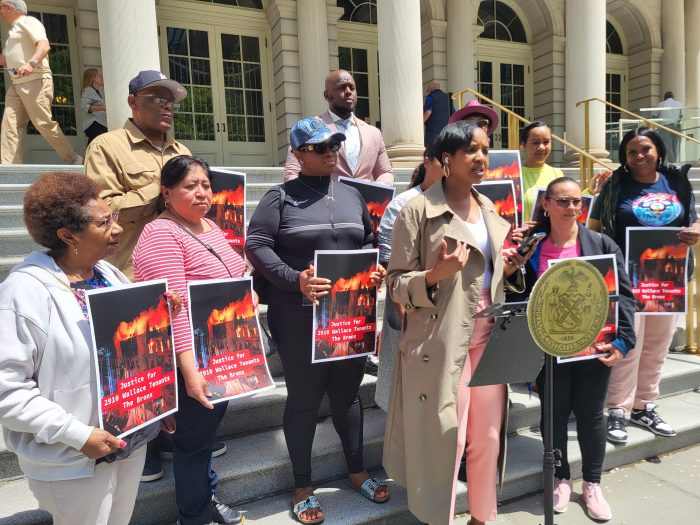
The displaced residents have argued for months that the city or Parkash should cover their housing costs while the building is being repaired, as proposed in the Gianaris bill.
Even an arrangement where the tenants paid their previous rate while a city voucher or Parkash covered the difference would be fine for most, Richardson said. “I know I’m not gonna find that [previous] rent anywhere, so I’m not unrealistic about that.”
She also believes Gianaris’ legislation would force owners to proactively take care of their buildings to avoid having to foot the bill for hundreds of tenants’ housing following a disaster.
While the bill wouldn’t force landlords into any actions, Gianaris said it would likely prompt them to move quickly.
“It would incentivize the rehabilitation of the building so that people can go to their actual homes much faster, because the longer that a landlord is expected to pay for suitable accommodations, the more the incentive is for them to actually fix the building itself so people can get back in their homes,” Gianaris told the Bronx Times last week.
Richardson said that not all landlords are bad, but “This bill would set a precedent, in my opinion, that will show all the landlords who are slumlords what they need to do.”
Delaying repairs
Some elected officials, including Council Member Shekar Krishnan and Council Member Alexa Avilés, have alleged that certain landlords have delayed repairs as a tactic to remove units from rent stabilization and make them market rate.
“These are all pretty long-established tactics that landlords have used to get units out of rent stabilization and also to displace longstanding tenants,” Avilés said.
Meanwhile, the City Council is taking steps to assist tenants displaced by fires and other emergencies, passing two bills in 2024 that serve to benefit impacted residents.
One piece of legislation, now law, was introduced by Brooklyn Council Member Alexa Avilés, which requires HPD to provide tenants displaced by a blaze with handouts detailing their occupancy rights. HPD must also inform impacted tenants of the process for rescinding a vacate order and what their landlord is required to do under the law.
A second bill that is now law, introduced by Bronx Council Member Pierina Ana Sanchez, requires the city to notify council members when a fire takes place in their district to help ensure that impacted families get the help they need.
Council Member Shekar Krishnan has also introduced legislation that, if passed, would require HPD to relocate vacated tenants to homeless shelters in their current community districts, rather than placing them in other areas or boroughs.
Another piece of legislation introduced by Krishnan would require HPD to appoint a nonprofit administrator to oversee building repairs and collect rent if a landlord does not enact repairs within a given timeframe. Neither bill has been passed by the Council.
Aviles, speaking to the Bronx Times on June 18, said her legislation aims to address a critical information gap, especially for tenants who don’t speak English as a first language.
She said “traumatized” tenants often reject offers for emergency accommodation when offered it directly after a fire, and that initial rejection permanently prevents them from obtaining emergency shelter accommodation.
“When buildings receive vacate orders, folks should understand what their rights are,” Avilés said.
Displaced tenants are often unaware of their rights, Avilés said, noting that tenants can retain a connection to vacated rent-stabilized units by paying as little as $1 per year. Many tenants, however, end up losing their connection to the rent-stabilized unit, she added.
“Once that connection gets severed, you can’t get it [a rent-stabilized unit] back,” Avilés said.
Avilés also believes the city can do more to help prevent fires in the first place, calling for HPD to demonstrate more proactive enforcement and ensure that landlords pay hefty fines for code violations.
She said Krishnan’s legislation requiring the city to take legal action against landlords who delay repairs would also help provide accountability and help displaced tenants return to their homes.
“If we are seeing landlords either delay repairs keep tenants out for long periods of time, we should be able to hold them accountable for that,” Avilés said.

